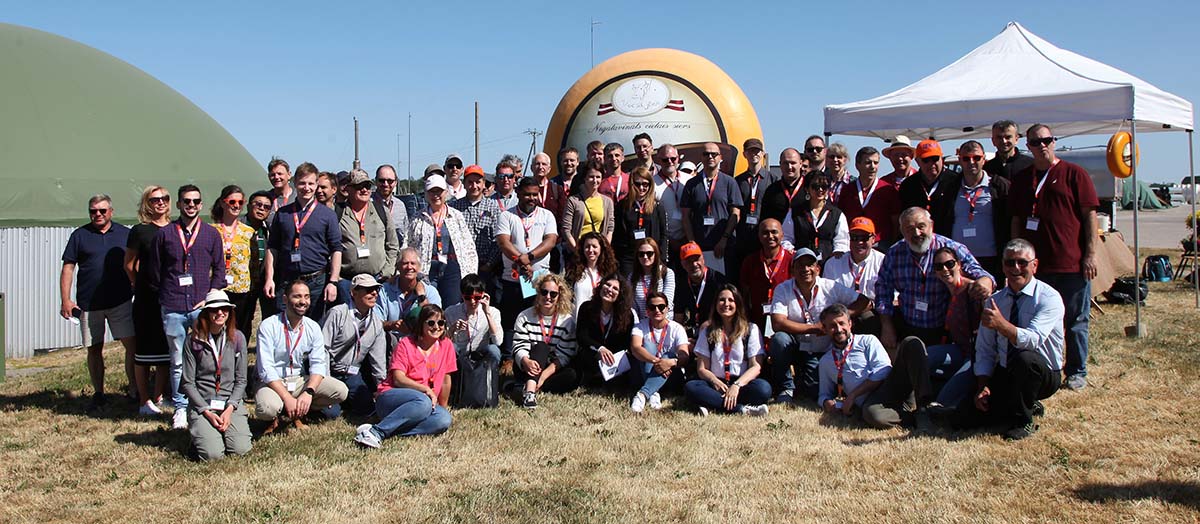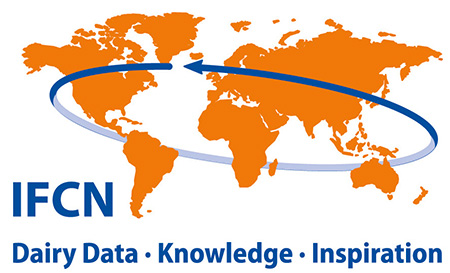This year’s IFCN Dairy Conference focused on the energy crisis and the challenges and opportunities for dairy. It took place in Riga from June 10th to 13th, 2023 as a hybrid event bringing together more than 210 dairy experts from over 60 countries.
Long-The income of 1 billion people around the world is directly or indirectly linked to the dairy sector. Therefore, any global event that negatively impacts the dairy industry will affect the livelihood of many households around the world.
The invasion to Ukraine brought supply chain disruptions and many countries were forced to find other energy suppliers. The ensuing increased energy prices, and lower fertiliser availability, pushed in turn fertilizer prices up. In addition, and despite having reached a record high level at the beginning of the year, the world milk price started showing a downward trend that put pressure on dairy farmers’ profitability. Consequently, instead of an annual growth in milk production of around 2.5% as it was seen in previous years, the lowest ever seen increase of 0.4% was realised in 2022. This raises the question: How can the dairy sector be developed in different regions to ensure a sustainable future milk pool?
The Dairy Conference provided a platform by bringing together speakers and panellists from all around the world to talk about the dynamics between the energy and dairy markets and discuss how to convert challenges into opportunities.
There will be not an “one-fits” all solution for the dairy world. During the conference, different perspectives were presented and discussed addressing various regions in the world. In more developed countries, the challenges mostly came from the political side (like animal welfare or environmental regulations), as well as the lack of labour, successors, and land. On the other hand, the less developed regions mainly faced uncertain economic and political conditions and were additionally short of an adequate infrastructure like roads, energy and water which should be provided by the respective governments. However, all participants agreed that adaptation and resilient production systems were needed together with farm income diversification, the increase of home-grown feed, and more technology, among others in order to tackle these issues.

What does this mean for the future of dairy?
The Member of Parliament in Latvia, Jānis Grasbergs, referred to the fact that Latvia had the lowest milk price in Europe (a quarter below the average in Europe). He also explained that the dairy industry was progressing while considering changes in the lifestyle of farmers, promoting advanced farming, as well as new forms of businesses and services.
We see many changes and new challenges coming at regional and national level. However, there are also many opportunities to develop the dairy sector. As Iewa Leimane from AREI said: “The dairy sector has an incredible superpower: the ability to convert the solar energy accumulated in grassland into nutrient-rich food products”. In addition, the participants highlighted the importance of sustainability, efficiency and affordability as essential aspects to consider when developing the dairy industry.
Data, networking and right strategies are needed to overcome upcoming challenges.
It was concluded that, in order to overcome challenges easily, the sector needed to remain open to changes, and to be flexible and adaptive. Dairy farmers will also have to prioritize and deal with issues one by one while thinking global but acting local as different regions require different solutions. To achieve this, dairy relies on people, data and information while working together as demonstrated successfully by the IFCN Network.
IFCN would like to thank all participants, speakers, panellists, hosts and sponsor for their contributions that will help the dairy sector as it moves into the future.
IFCN past events
IFCN Global Tech Mapping 2023
IFCN Dairy Forum 2022
IFCN Supporter Conference 2022
